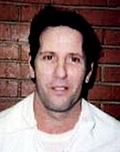
The case:
Max Soffar is currently on death row due to a false confession that implicated him in an armed robbery at a Bowling center in Houston, TX during which 3 persons were killed and one severely injured. This occurred in 1980. He was questioned for three days and the statements that he made were either available through the media or that were told to him. There was not a lawyer present when he was questioned. At the time he was a drug addict and was not able to fully realize the seriousness of the situation he got himself into by this. When he later recanted it was too late and he ended up being charged with murder and was sentenced to death.
Max has tried to prove his innocence ever since. He has been granted a new trial in 2006 due to inadequate defense, but was sent back to death row again. Many of the facts that were offered by his defense to show his innocence were simply not heard by the court. People who have studied his case can that it is clear that Max has not committed that crime. In fact, there is another person that had admitted that he has committed that crime. However, Soffar was denied the constitutional right to defend himself because Soffar’s trial judge refused to admit evidence that another man confessed to committing the murders. This man, Paul Reid, formerly of Houston, also committed a series of highly similar robbery-murders and now awaits execution on Tennessee’s death row. A photograph of Reid, taken in Houston nine days after the bowling alley incident, strongly resembles the police’s composite sketch based on the description of the crime’s sole witness. The ACLU and the Texas Innocence Project also charged that Soffar was denied his constitutional rights when, during his second trial, the court refused to allow him to show that media reports of the crime contained all of the details in his false confession. Nonetheless, Max remains on death row and his attorneys are still fighting to prove his innocence.
From maxsoffar.com and truthinjustice.org/soffar.htm
Supporting documentation
Petition for Writ of Certiorari, March 29, 2010
